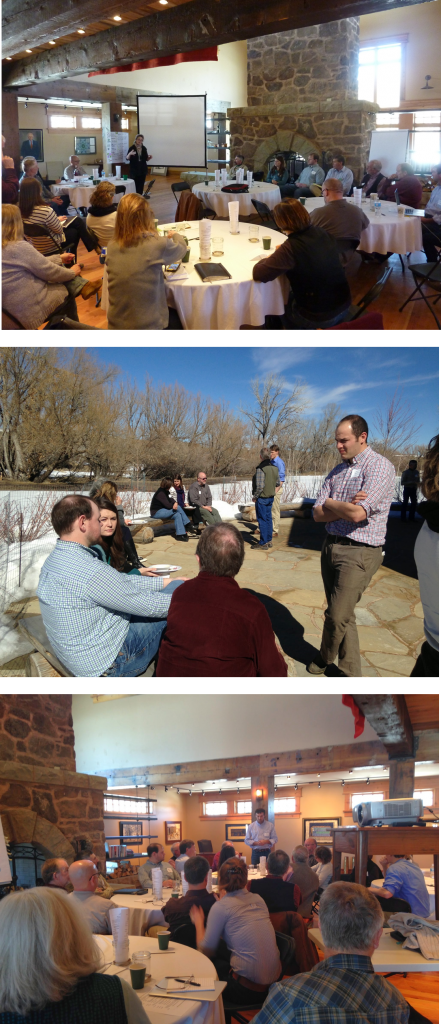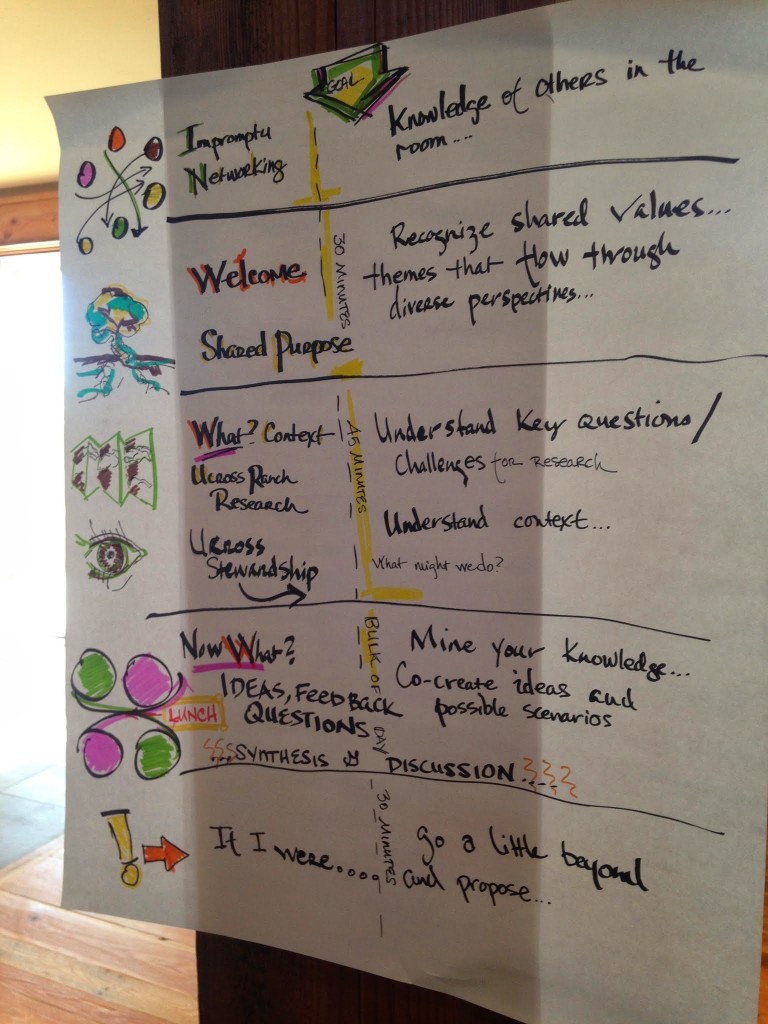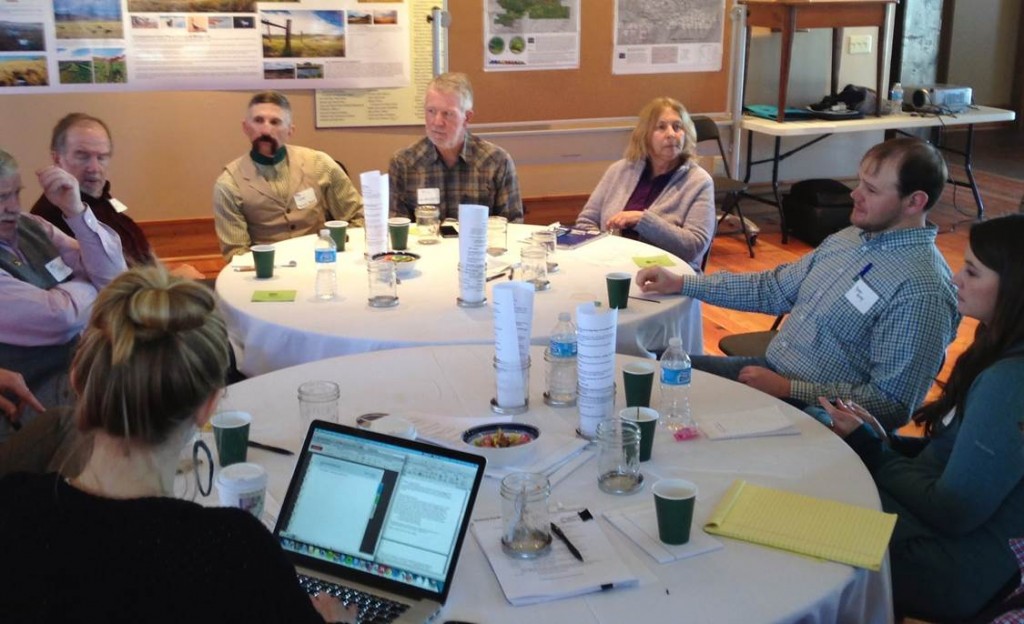Michelle Sullivan, John Heyneman, and UHPSI recently collaborated in bringing together a wide variety of regional residents invested in the land and its stewardship. We were fortunate to have 30 particpants, including farmers, ranchers, students, academics, and land stewardship professionals, under a single roof. We spent March 8th in the Raymond Plank Creative Center discussing the nature of land stewardship, its place on the High Plains, and where efforts should be focused as ecological research and programmatic development continue.
Central to the meeting was soliciting feedback on UHPSI’s ecological research programs, and having participants distill the land management needs of the region into tangible action items that could be used in guiding the development of a wide-reaching stewardship organization. We received a wealth of useful information and suggestions from participants, and witnessed the wonderful energy that comes when bringing together great minds with decades of experience. Here’s a sampling of a few of the themes that surfaced over the course of the day:

Top: Michelle Sullivan facilitates group discussion in the Raymond Plank Creative Center at Ucross. Middle: Spring sunshine invites some outdoor discussion over lunch. Bottom: Conservation and Stewardship Manager Nathan Lindsey discusses the stewardship practices utilized on the Ucross property.
• Appropriate land stewardship practices should be shared with a wider community, but we must first know who it is that we are trying to reach. In many cases the “who” are folks managing the land, from backyard gardeners to those ranching thousands of acres.
• There is a lot of land stewardship information out there, but few mechanisms for sharing it exist. Peer networks are lacking in the High Plains, but could serve an important role in establishing community resilience and the sharing of knowledge and skills. Connectivity through the Internet may also play an important role.
• As a High Plains stewardship organization grows out of Ucross, land grant institutions, such as the University of Wyoming, and private institutions, such as The Nature Conservancy, may play increasingly important roles.
• Entrepreneurial innovation and novel policy directives may play an important role in land stewardship by creating financial incentives, or by solving basic economic challenges such as limited markets or limited access to processing facility.
• It would be useful if stewardship outcomes could be better quantified such that results could be standardized and easily interpreted by many parties.
• Stewardship of the land relies on ecological stewardship as well as economic and social stewardship. As we pursue landscape resilience we must also pursue economic and social resilience.
• Mentoring networks may play an important role in supporting the younger generation looking to take up land management occupations.
• Where much of the region’s rangelands are leased, if their were policy directives and methods for quantifying a lessee’s proposed contributions to land stewardship, leases could be given to operators who offered the most ecologically, economically, and socially sound practices, as opposed to those that provide the highest bid. Some facets of current policy can get in the way of land stewardship, and additional data could help plow new ground.
• Land stewardship is taking place all around us, but many are unaware of what goes on. It is important to have clearer ways to reach people about best practices, events, social gatherings, and more.
• There are already large-scale models for land stewardship in other parts of the country, and it might do us well to evaluate the potential effectiveness of those models in the High Plains.
As UHPSI continues to collaborate with folks across the High Plains, we intend to direct our research efforts towards topics of particular relevance to the larger region. The task of establishing a comprehensive research, networking, and information hub is formidable, and may take some time to reach fruition. But as Raymond Planks likes to remind us, beyond all else we should simply try our best to make a small difference in the world and lives around us.
UHPSI would like to extends a big thanks to the Ucross Foundation and to Apache Corporation for helping provide the much needed logistical support that made this gathering possible.


